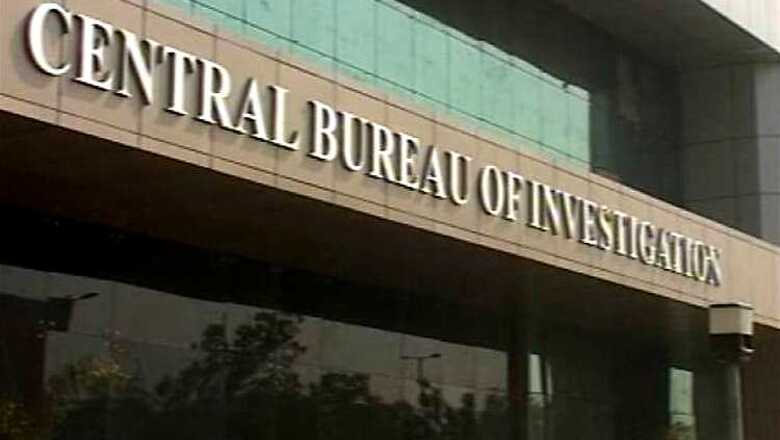
views
New Delhi: The Central Bureau of Investigation on Sunday conducted searches at locations and started questioning of some of the suspects in its probe into alleged black money transfer of Rs 6000 crore to Hong Kong through Bank of Baroda camouflaged as payments for 'non-existent imports'.
CBI sources said most of the 59 account holder companies, which had allegedly sent these remittances in the garb of payments for suspected non-existent imports, have given wrong addresses.
They said despite that the agency has identified prime suspects in the case with some of whom being questioned at the CBI headquarters here.
"The Central Bureau of Investigation has registered a case under section 120-B (criminal conspiracy) read with 420 (cheating) of IPC and Section 13(2) read with 13(1)(d) of Prevention of Corruption Act, 1988 against 59 current account holders and unknown bank officials and private persons on a complaint from Bank of Baroda," according to CBI spokesperson here.
The FIR alleged that "59 current account holders and unknown bank officials conspired to send overseas remittances, mostly to Hong Kong, of foreign exchange worth approximately Rs 6,000 crores in illegal and irregular manner in violation of established banking norms under the garb of payments towards suspected non-existent imports".
The Enforcement Directorate has also registered a case and carried out searches in this connection.
On Saturday, Congress had demanded an inquiry into the matter.
"It was strange that the money was sent to buy cashew, pulses and rice from Hong Kong," Congress spokesperson RPN Singh had said.
The bank had carried out an internal probe after an audit red flagged nearly 8,000 transactions done from its Ashok Vihar branch here, the CBI sources said.
They said the account holders who were allegedly sending these payments to Hong Kong had claimed that these were advances for imports of cashew, rice, etc whereas no such imports ever took place.
The sources said these remittances were sent by splitting them into amounts below $100,000 to avoid automatic detection by software used by banks to alert them about such transactions.
They said in taxation language the method is known as smurfing and holders were able to skip the scrutiny of such transactions.
These 59 current accounts were opened in the name of companies, giving wrong addresses, then cash worth crores was deposited over a period, the sources said.
Later, the bank was asked to make the payments as advances for the purported imports, they added.




















Comments
0 comment